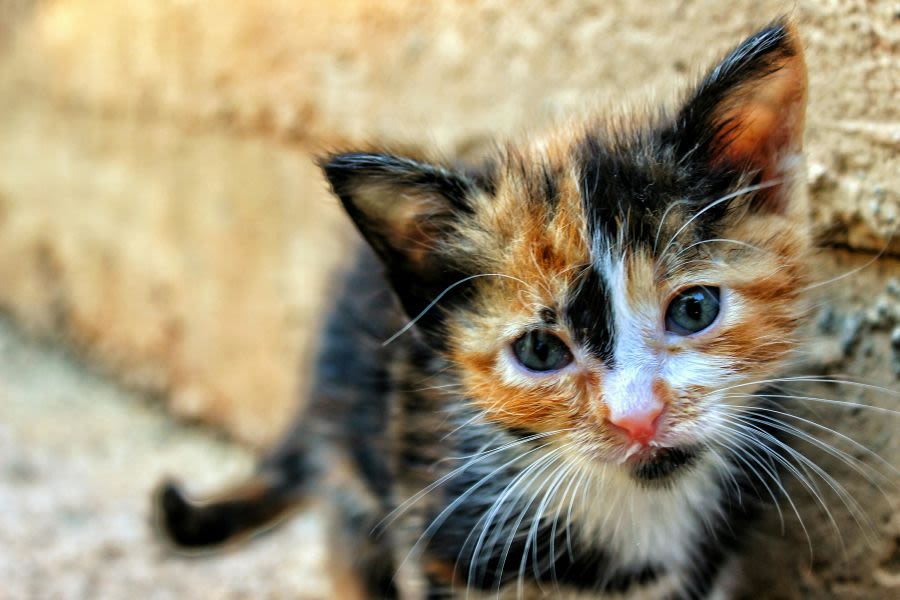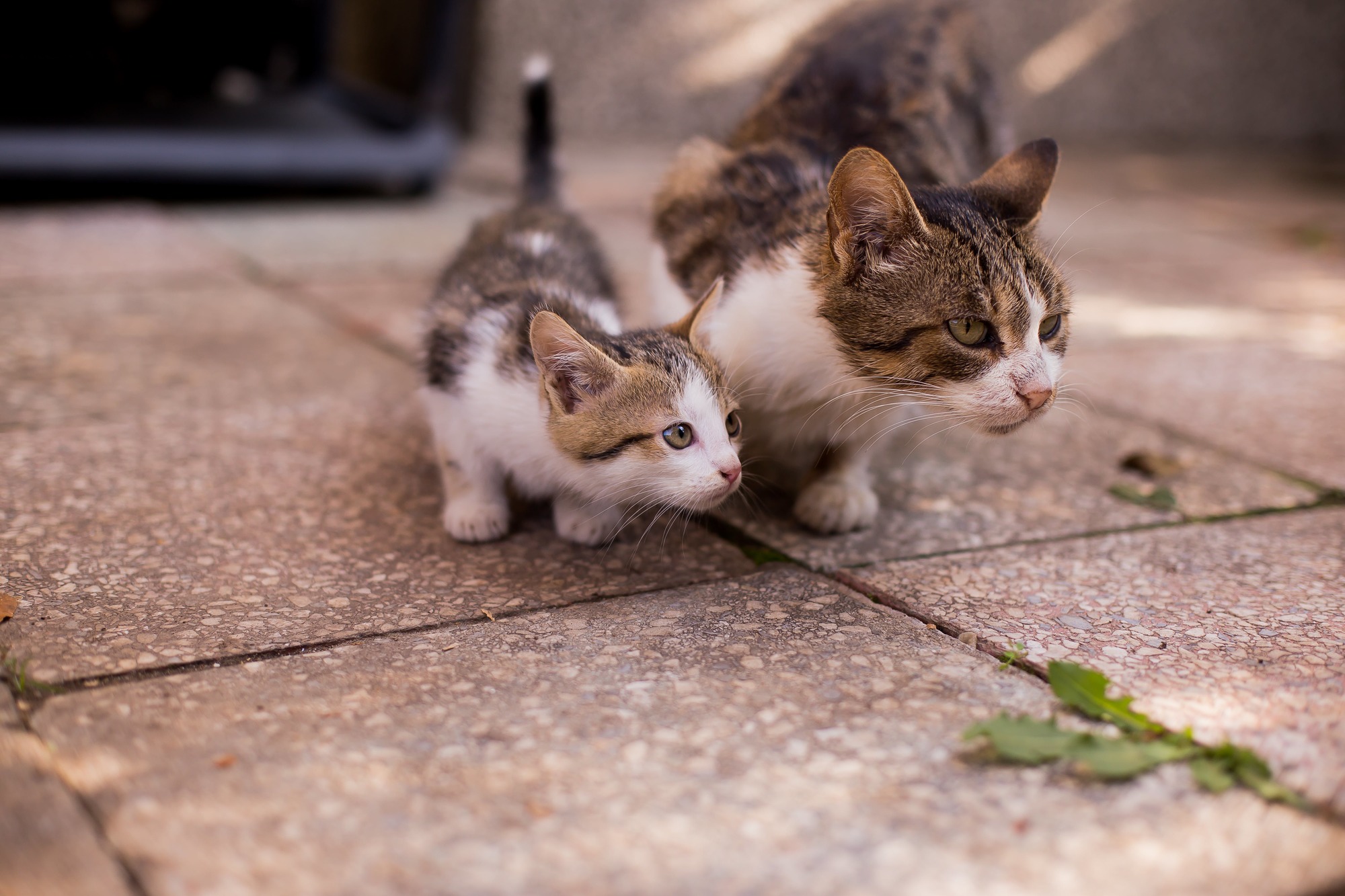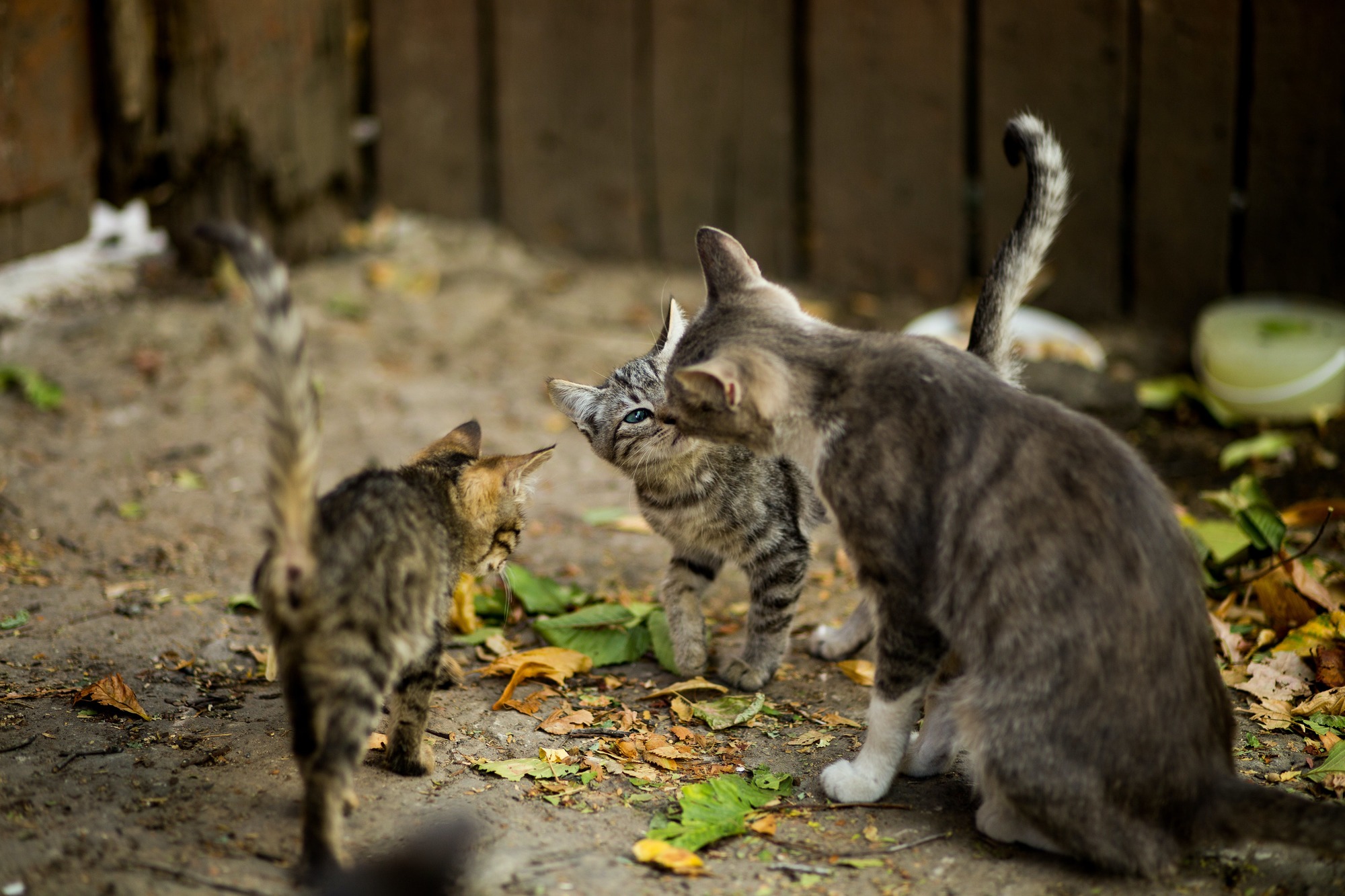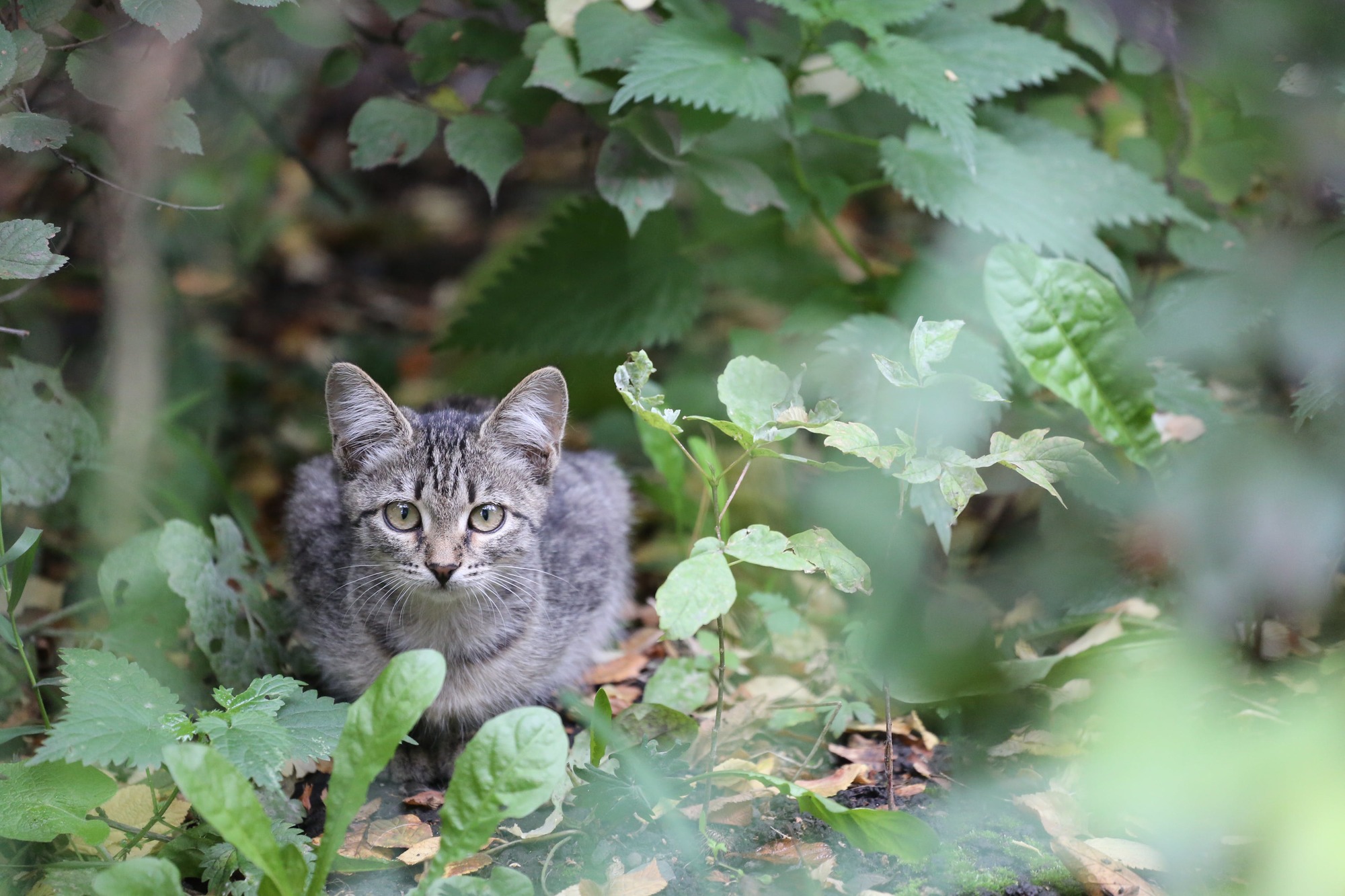 Free cat desexing = a win for cats, councils and communities
Read more
Free cat desexing = a win for cats, councils and communities
Read more
Last updated: 21 Dec, 2023
Published on: 3 Aug, 2012
Help! I’ve found a stray kitten family!

So, you’re cleaning out your garage, and behind all the boxes, you find a litter of kittens, and the stray mum is nowhere to be seen. What should you do?
Hundreds of kittens are brought into shelters yearly, many under eight weeks of age and some as young as one day old. The people who find these kittens are only doing what they think is right, but you’ve made the right move by seeking our advice first. Good work!

Has Mum really abandoned her babies?
As a species, cats generally don’t abandon their litter. Just like human mothers, cats also need to take an occasional break from the kids. She may be out getting some much-needed rest or food or doing a perimeter predator check to ensure her babies are safe. That’s only natural.
Don’t break up the family!
Don’t move the kittens. Just watch from a safe distance over a 24-hour period, ensuring you don’t frighten Mum away. It’s really important to keep the family together because Mum is better equipped than anyone else to care for her new litter. She will keep her kittens warm, fed and clean and help them learn essential survival skills such as play, hunting and socialising with other cats.
More crucially, Mum strengthens their immune system through her milk. Kittens are born with extremely immature immune systems, and those under eight weeks of age have a very low chance of survival if they are separated from Mum and brought to a shelter.
So remember, kittens have a much stronger chance of survival if they’re kept with Mum.

Helping Mum
What every Mum needs most is just a bowl of water and some food. Grab some meat or tinned fish if you don’t have cat food available. Take great care not to frighten her. Move quietly and slowly and leave her alone while she eats. If the kittens are mobile, they are probably old enough to eat as well, so make sure you allow extra for them.
Standing at a distance while they eat, do a quick kitty check. How many are there? Do they look healthy? How big are they? Is Mum timid or friendly? This information is important to know, as once the kittens are big enough to be eating independently, at around six weeks, it’s the right time for them to be rehomed and Mum to be desexed.
Could mum be a wandering or lost pet cat?
If the mum is friendly, you can try making a paper collar and attaching it with a couple of pieces of tape. On the paper collar, put a note saying, ‘Please call this number if this is your cat… (enter your contact number)’. Or, put a note to let the owners know their cat is wandering, Quite often, the owners won't even be aware.
You can find a template for a paper collar here.
If the cat seems friendly, fitting a paper collar shouldn’t be too much of a problem. If the cat is nervous, please don't risk being bitten or scratched.
If the cat is injured, looks sick, or is very skinny, this may indicate that they are a lost pet cat rather than an urban stray cat, so it will be beneficial to seek out a microchip scan.
Lost pet cats are generally never too far from home, so it’s also recommended that you take a photo of the cat to post on local community Facebook groups and lost and found pet groups for lost cats in your area.
Think responsibly and act compassionately
Unfortunately, very few councils are willing and able to assist people who have found a stray cat. Most pounds can only offer euthanasia, and rescue groups tend to be extremely full over summer when the kitten season starts. The tragic truth is that tens of thousands of kittens are destroyed yearly.
Caring for a cat family is a big job, but it can be enormously rewarding. Many ordinary people have proved that they can provide a positive solution by assuming responsibility and thinking compassionately.

Catching and keeping kitty safe
When encountering a friendly cat, think twice about picking it up and taking it to a shelter. Research shows that lost pet cats are far more likely to find their way back home themselves, with only 3% of 'rescued' cats reunited with their owners via a shelter.
Leave pet cats where they are or, if laws permit, take them to a local vet to be scanned for a microchip. A staggering one-third of cats entering the council system are killed. So, we don’t want the cat ending up in a shelter if it is lost. Statistically, cats are much more likely to return home on their own than survive being impounded.
Only attempt to catch them yourself if you can touch and pick them up. If Mum is timid or wild, contact your local council for a trap and an animal welfare group to assist or advise you with trapping and desexing.
Once you have her safely contained, take her to the vet or contact an animal welfare group to find a subsidised desexing program to get Mum desexed. It’s important to act fast, as an unsterilised female can have multiple litters during the warmer months.
Visit the National Desexing Network website for more information on desexing. You can also check out Alley Cat Allies for further information and advice.
Rehoming
The Litter
Call your local vet clinic for assistance with desexing and finding out how old the kittens are. Some vets operate rehoming centres and can take in kittens when they are not busy. Alternatively, call your local rescue groups to ask if they can help with desexing and rehoming the litter. You can use our Rescue Directory to find groups in your area.
Move the kittens to a quiet, spare room, laundry or bathroom and kit it out with two litter trays and a bed, which can be bought cheaply from a two-dollar shop.
The kittens may be timid around humans, too, but allowing them to get used to your presence will teach them to trust, which is extremely important preparation for rehoming. The Kitten Lady has some great tips for socialising kittens.
What about Mum?
Timid adult cats who have never lived indoors are generally not good rehoming candidates. Sometimes, you can strike it lucky, but chances are her options will be limited.
That said, a healthy, desexed adult cat that’s used to living wild will do very well if provided with a regular meal. Known as ‘urban stray cats’, these free-roaming cats keep rats and mice away and are almost invisible to all but those who know and love them.
Across the country, thousands of people are caring for urban stray cats. If you decide to join them, become the listed contact on the cat's microchip and let your immediate neighbours know that you are caring for a previously unowned, desexed cat. Ask them to contact you if they have any concerns.
Most people understand once they know someone is taking control of the situation. But if they’re keen to keep your community cat and all the others in the neighbourhood out of their yard, you can suggest a host of humane deterrents.
Lastly, remember your neighbourhood cat needs your help to stay happy and healthy. Give her somewhere warm to sleep in the winter, and ensure she has plenty of water during summer.
Thanks for being part of the solution!
By acting compassionately and caring for these homeless animals, you are saving lives and teaching others around you to show compassion, too. You’re doing an amazing thing, and it’s an experience you’ll never forget.
Everyone is capable of making a difference.
Read about the Community Cat Program and how it's helping cats here.
Image credits: Павел Карсаков, EVG Kowalievska, burak kostak, and Anton Atanasov via Pexels.













































